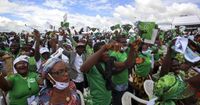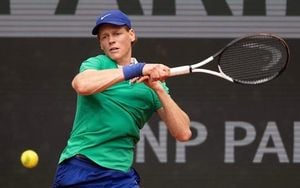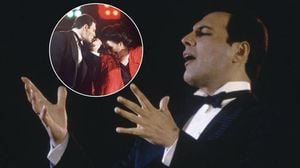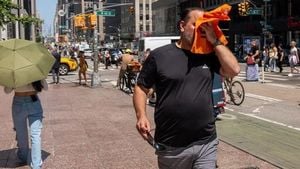President Alassane Ouattara’s announcement on August 19, 2025, that he will seek a fourth term in office has sent political tremors through Ivory Coast, igniting fierce opposition and raising serious questions about the future of democracy in the West African nation. The 83-year-old leader, who has been at the country’s helm since 2011, declared his candidacy in a televised address, just weeks before the October 25 presidential election. His justification? Both his health and the country’s Constitution, he argued, allow him to serve another term—despite widespread objections from opposition parties and mounting frustration among the country’s youth.
Ouattara’s decision comes at a time he describes as fraught with “unprecedented security, economic, and monetary challenges.” According to the president, the growing terrorist threat in the region and economic uncertainties on the global stage require steady leadership. “Indeed, the terrorist threat is growing in the sub-region and economic uncertainties at the international level constitute a risk for our country,” Ouattara stated during his announcement, as reported by BBC. He emphasized his experience as essential for managing the country through such turbulent times.
But this move has sparked a firestorm among opposition leaders, who say Ouattara’s bid is not only controversial but outright unconstitutional. When the Ivorian Constitution was adopted, it set a clear two-term limit for presidents. Yet, in 2016, Ouattara pushed through constitutional changes that reset the clock, allowing himself to run for—and win—a third term in 2020. Now, as he seeks a fourth, critics argue the spirit of the law is being trampled.
Pascal Affi N’Guessan, former prime minister and candidate in the upcoming polls, minced no words. “Independent of the Constitution, Ouattara himself has repeatedly said that he is ready to pass the torch to the next generation,” N’Guessan told Reuters. He pointed to the president’s own statements in 2020, when Ouattara cited exceptional circumstances to justify his continued rule. “So how can he now explain his bid for a fourth term?” N’Guessan asked, echoing the confusion and frustration felt by many Ivorians.
The opposition’s outrage isn’t limited to constitutional arguments. N’Guessan accused Ouattara of deepening divisions within Ivorian society, imprisoning political opponents, and damaging relationships with neighboring West African countries. “He’s divided Ivorians, he imprisons people day in and day out, has destroyed our relations with the sub-region, he’s truly become a problem for Côte d'Ivoire,” N’Guessan asserted, as cited by France 24. The former prime minister argued that the country must address these issues to restore unity and stability, rebuild ties with the region, and reposition itself on the international stage.
Complicating matters further, two of the country’s most prominent opposition figures—Democratic Party of Ivory Coast (PDCI) leader Tidjane Thiam and former President Laurent Gbagbo, head of the African People's Party of Ivory Coast (PPACI)—have been barred from running in the upcoming election. Both are actively campaigning to be reinstated on the electoral list, but their exclusion has fueled accusations that the electoral process is fundamentally flawed.
“Until the entire opposition mobilises to ensure that the Independent Electoral Commission is more transparent and more balanced, so that the electoral code is revised, the electoral roll is cleaned up, and all these issues are resolved, there is no prospect of peaceful elections,” N’Guessan warned, according to Al Jazeera. Despite Ouattara’s assurances of a peaceful poll, skepticism runs deep among opposition ranks, who see the exclusion of key figures and lack of transparency as major obstacles to a fair contest.
The controversy over who can run for president took a dramatic turn earlier this year. In April, an Ivorian court ruled that Tidjane Thiam, the PDCI’s nominee and former Credit Suisse Chief Executive, should be removed from the electoral roll on the grounds that he was a French national at the time of his registration. Thiam fired back, accusing the ruling party of using the judicial system to eliminate Ouattara’s most formidable rival. According to The Guardian, Thiam said the court’s decision was a calculated move to sideline him and undermine the opposition’s chances.
This legal maneuvering has left the PDCI-RDA, one of the country’s historic political parties, in disarray. With just over a week remaining for candidates to register, a group of opposition activists—including members of the former Movement of Students of Côte d'Ivoire and officials of the PDCI-RDA—have called for a “Plan B” nominee. They argue that the party’s failure to present a viable alternative is discouraging supporters and pushing some to defect to other political groups. The group, operating under the Initiative for the Reconciliation and Safeguarding of the party, has also criticized what they describe as “internal dysfunctions,” including opacity in financial management, undemocratic internal practices, and a growing disconnect between party leaders and grassroots members.
Not everyone within the PDCI-RDA agrees with this grim assessment. Sylvestre Emmou, the party’s executive secretary, flatly denied that a crisis exists within the party. He argued that the criticisms were giving a false impression of disarray and insisted that the party remains united and focused on the upcoming election.
With the October 25 election drawing near, the stakes could hardly be higher. The exclusion of major opposition figures, allegations of constitutional manipulation, and internal party strife have all combined to create a highly charged political atmosphere. Analysts, as reported by BBC, note that young Ivorians are increasingly demanding change, frustrated by what they see as an entrenched political elite unwilling to cede power or embrace meaningful reform. The country’s recent history—marked by civil unrest and contested elections—looms large over the current moment, amplifying fears that this year’s vote could spark further instability if not handled with transparency and fairness.
For now, President Ouattara remains steadfast in his belief that only his steady hand can guide Ivory Coast through its current crises. But with the opposition mobilizing, questions swirling around the legitimacy of the electoral process, and a restless youth population calling for new leadership, the stage is set for a contentious and potentially pivotal election. The coming weeks will test not only the resilience of Ivory Coast’s democracy but also the willingness of its leaders to listen to the voices clamoring for change.




